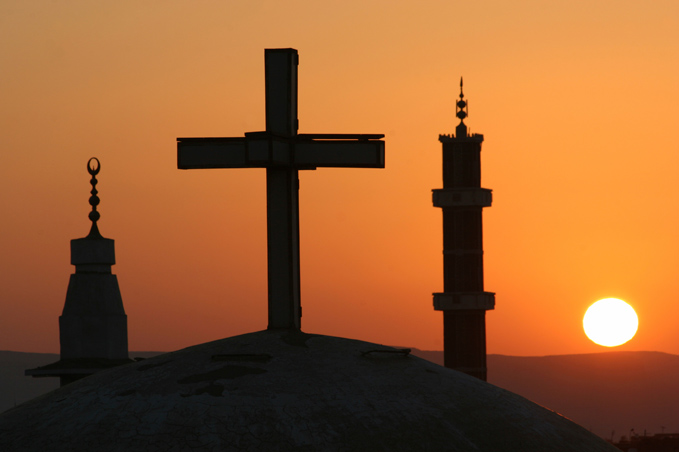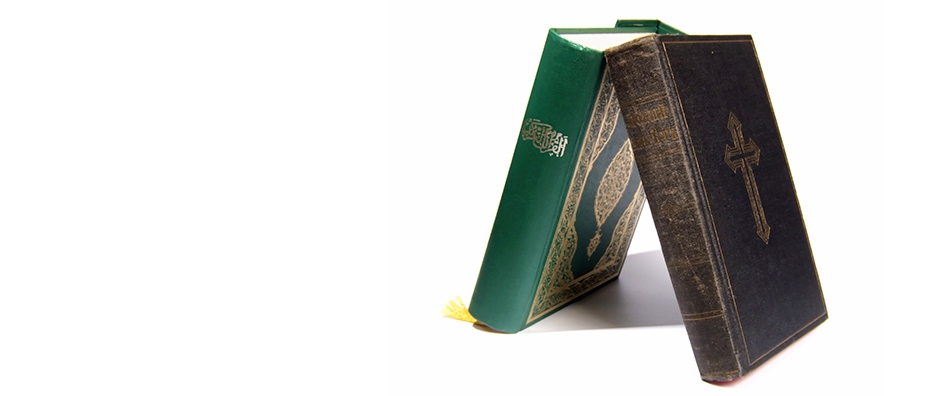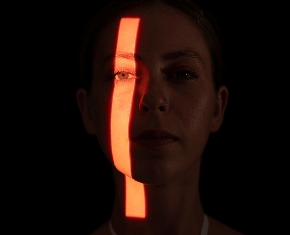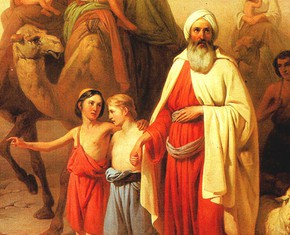The views expressed in our content reflect individual perspectives and do not represent the authoritative views of the Baha'i Faith.
When I began to read Arabic, the language of the Qur’an struck me with awe. I soon understood why the Qur’an inspires Muslims with such thoughts as these:
The Quran…is therefore not a book. It is more like a sea of signs. These signs are formless visuals for the inner eye and soothing resonance for inner hearing. They draw us out of ourselves into a mystical vastness, obscuring selfhood and its boundaries of form and time. Like the Nature-lover who is drawn ever deeper into the obscurity of wilderness, the seeker of the Quran is drawn into the immanence of Wholeness. All signs manifest the Unity of Divine Will, Divine Purpose and Divine Mercy; beyond space, beyond time and beyond dogma. – Saeed Malik, A Perspective on the Signs of Al-Quran, p. 13.
The crucifixion of Jesus Christ has proven a ‘lightning rod’ of sorts for the formation of dogmas, and this is true in Islam as well as Christianity. The major sects of Islam maintain that Christ was never crucified, based on one short and enigmatic line in the Qur’an:
That they said (in boast), ‘We killed Christ Jesus the son of Mary, the Messenger of Allah’—but they killed him not, nor crucified him, but so it was made to appear to them…For of a surety they killed him not—nay, Allah raised him up unto Himself… – 4:157-8, Yusuf Ali.
 On the strength of this verse, many Muslims believe, in direct opposition to the New Testament, that Jesus Christ was never crucified at all, but was taken up to heaven by God beforehand, and a look-alike crucified in his place.
On the strength of this verse, many Muslims believe, in direct opposition to the New Testament, that Jesus Christ was never crucified at all, but was taken up to heaven by God beforehand, and a look-alike crucified in his place.
This disagreement has created a serious obstacle to dialogue between the world’s two largest religions. However, we can understand this verse in the light of Christ’s words:
Therefore doth my Father love me, because I lay down my life, that I might take it again. No man taketh it from me, but I lay it down of myself. I have power to lay it down, and I have power to take it again. This commandment have I received of my Father. – John 10:17-18.
According to the New Testament, the Jewish people had neither the power nor the authority to execute the Messiah. Literally speaking, the Romans carried out the execution. On a deeper level, as part of the purpose of God, no human agency could subvert the Father’s will, once the Son committed Himself to it (Mathew 26:42). Those who outwardly appeared to crucify the Messiah did not actually do so—just as God told the prophet Muhammad in regards to his defensive battle against persecutors from Mecca: “It was not ye who slew them; it was Allah: thou didst not throw when thou threwest, but Allah threw.” (Qur’an 8:17). According to the Qur’an, Allah told Jesus “O Jesus, I am gathering thee,” and the Arabic verb “to gather,” tawaffā, means “to cause to die.”
Cyril Glassé, a Sunni Muslim and compiler of The Concise Encyclopedia of Islam, acknowledges that the Qur’an does not deny the crucifixion of Christ as a historical event:
It is in fact the common belief among Muslims that the crucifixion was an illusion, or that someone else was substituted for Jesus… [but] the crucifixion as a pointless charade can hardly be meet to God’s purpose, and two thousand years have not shown what God could have meant by such sleight of hand. Nor does the Koran warrant such a view…In Islam it is the absolute, or higher, reality that takes precedence in the Koran over the appearances of this world, be they of life or of death. It is this verse about the state of the martyrs which holds the key to understanding ‘They slew him not’: ‘Say not of those who are slain in God’s way that they are dead; they are living but you perceive not.’ (2:154) – The Concise Encyclopedia of Islam, pp. 208-209.
In other words, in the sense in which Christ died, it was God Himself who “took” him. In the sense in which the people thought they had “killed” Him, he did not and could not really die—a concept that squares with Christ’s words in the Gospel of Matthew:
But as touching the resurrection of the dead, have ye not read that which was spoken unto you by God, saying, I am the God of Abraham, and the God of Isaac, and the God of Jacob? God is not the God of the dead, but of the living. – Mattew 22:31-32.
A close reading of the Qur’an necessitates nothing else. This interpretation of the Qur’an, while differing from Islamic tradition, coincides exactly with the Baha’i teaching on Christ’s crucifixion:
Know thou that when the Son of Man yielded up His breath to God, the whole creation wept with a great weeping. By sacrificing Himself, however, a fresh capacity was infused into all created things. Its evidences, as witnessed in all the peoples of the earth, are now manifest before thee. – Baha’u’llah, Gleanings from the Writings of Baha’u’llah, p. 36.
Baha’is believe that the account of the crucifixion as recounted in the New Testament is correct; and that the meaning of the Quranic version is that the spirit of Christ was not crucified—with no conflict between the two.
The Baha’i reconciliation of the New Testament and the Qur’an on this contentious point should greatly interest all students of the world’s religions. At the very least, it invites us all to consider the Qur’an and the Bible on a different level, where unity becomes the guiding principle and divisive dogmas fall away.
















Comments
Sign in or create an account
Continue with Googleor